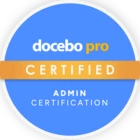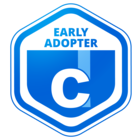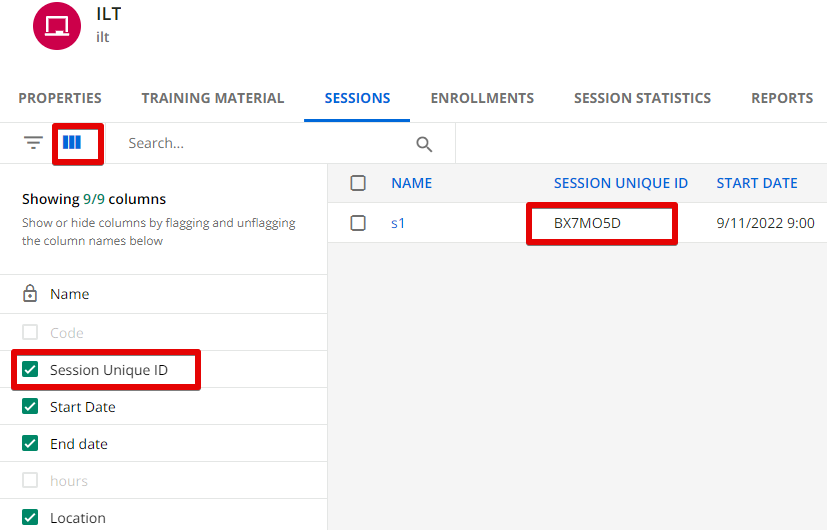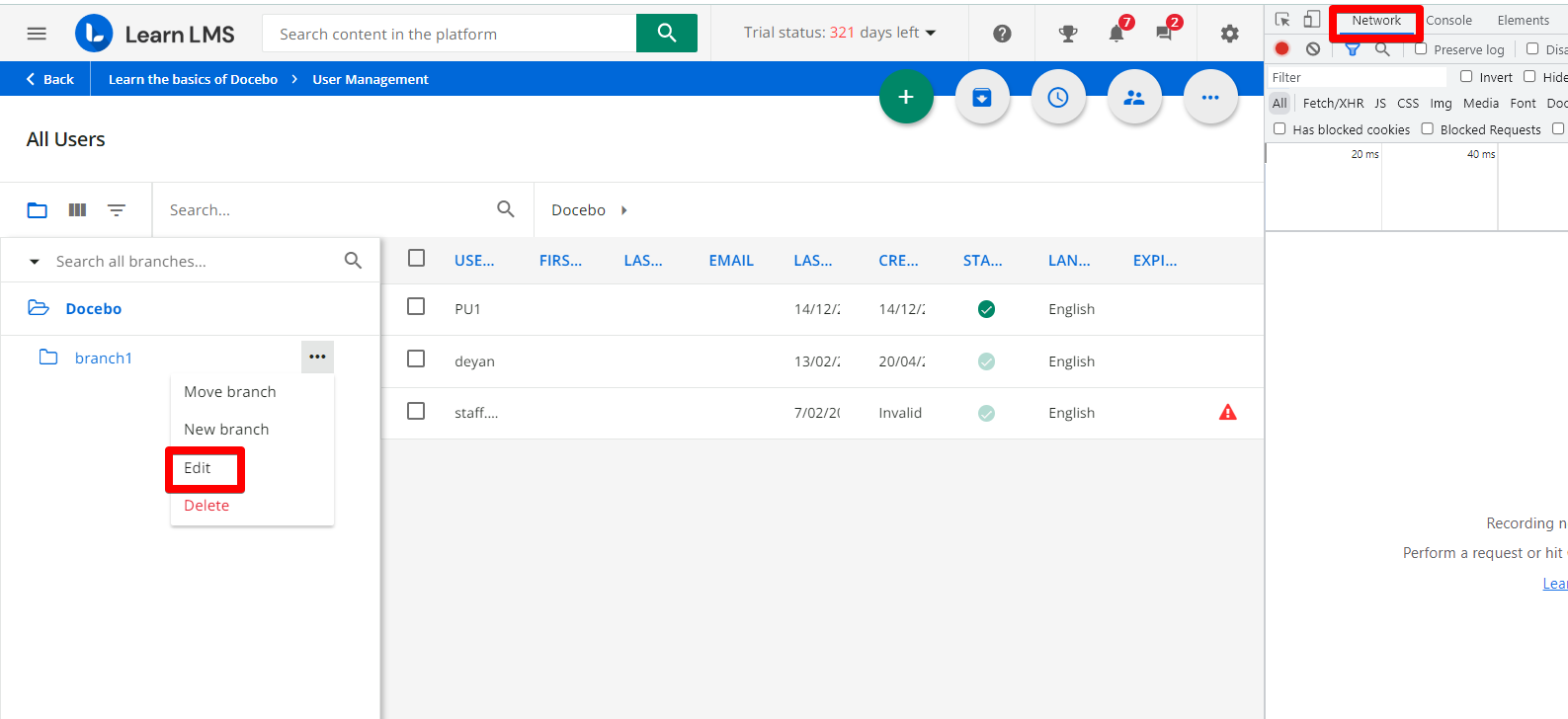Hi everyone, Roberto Moscatelli from the Docebo Support team here and I want to speak a little bit about some IDs that you can find directly using the UI.
There is more than one reason why you need these IDs: for example you need them to make some API calls.
Here below you can find the easiest way to retrieve IDs directly on your platform.
Retrieve User_id
You just need to go to Admin Menu-User management and search for your user:
Then open the network tab:
In order to access the browser console, you can simply right-click any element of the page and select "inspect"; then in the following window select the network tab
Now just click on the 3 dots right to the username and select “Edit”. The User_id will appear at the bottom left in the network tab:
Retrieve Course_id
You just need to go to Admin Menu-Course management and search for your course.
Then click on the course and you can find the course_id in the URL:
Retrieve Session_id
If your course is an ILT course, just select the course and then click on the session that you need:
And you can find the session_id in the URL:
Retrieve Event_id
If your course is an ILT course, just select the course, then the session and then click on the event that you need:
And you can find the session_id in the URL:
Retrieve LO_id
You just need to go to Admin Menu-Course management and search for your course.
Then move to the training material tab:
Now click on the hamburger menu right to your training material and then hover the mouse on “delete”
At the bottom left you will see a string with id_object”: this is the ID of your learning object:
Retrieve Page_id
For custom pages is enough to go in that page and check the URL:
If you don’t have this page on your menu, just go in Admin Menu-Manage Pages and select your page: also in this case the Page_id will appears in the URL
Retrieve Catalog_id
You just need to go to Admin Menu-Course catalog and hover the mouse on the “assigned courses” icon right to the catalog name:
At the bottom left you will see a string with “assignCourses&id”: this is the ID of your catalog
Retrieve Learning Plan_id
To find the ID of a learning plan, navigate to Admin Menu > Learning Plans, click the ellipsis button (...) next to the desired learning plan, and select Edit.
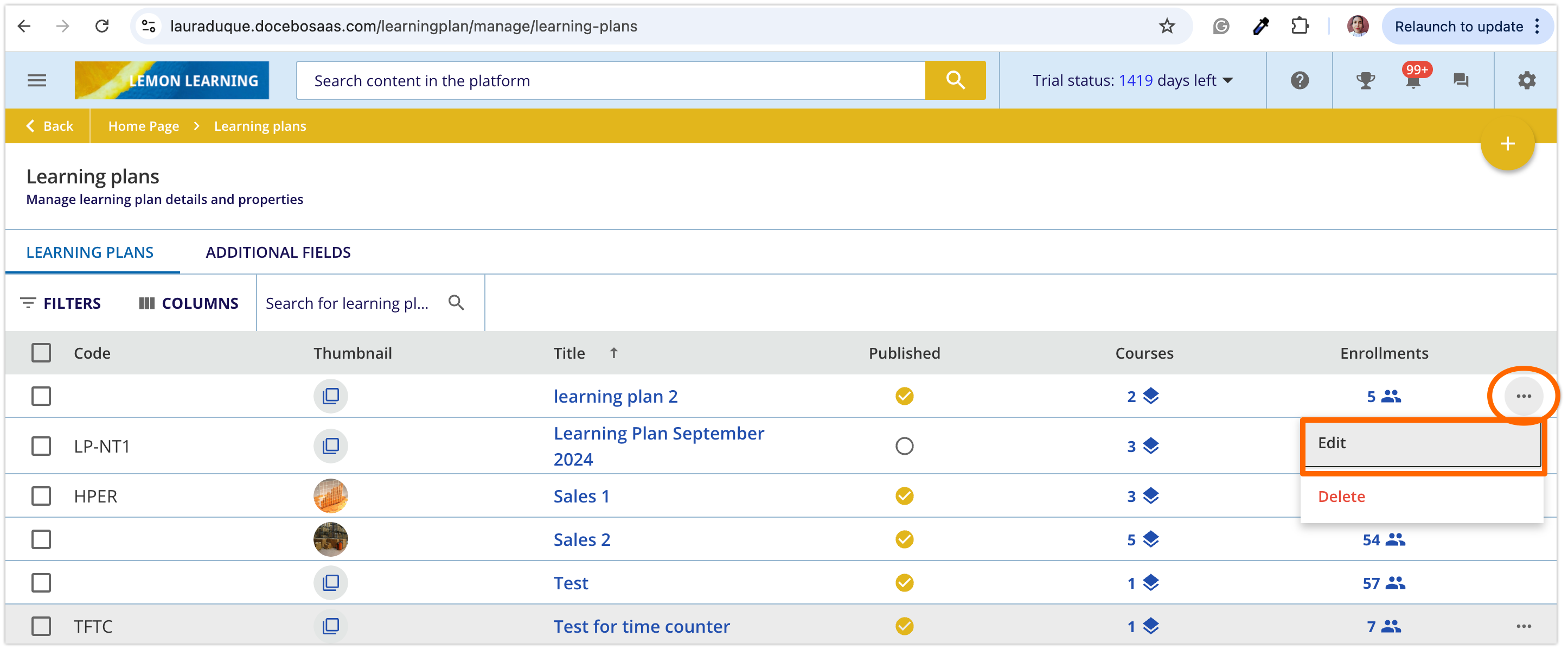
The Learning Plan details page will open. You can find the Learning Plan ID in the URL bar at the top of your browser.
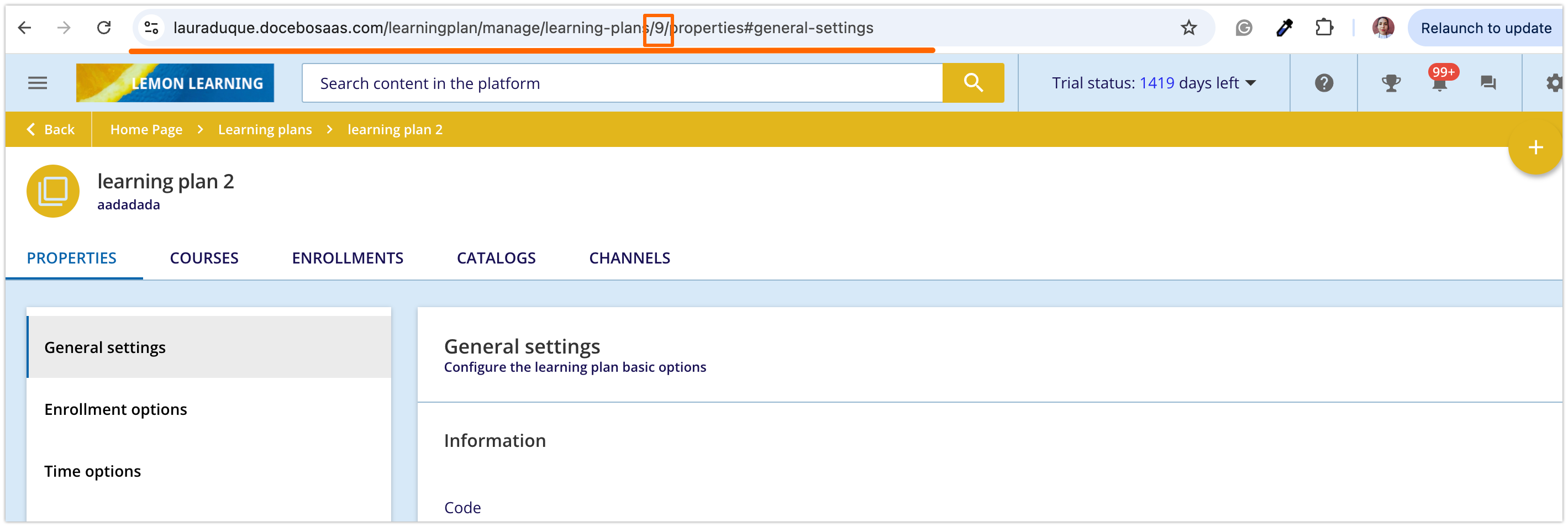
Retrieve Channel_id
You just need to go to Admin Menu-Channels and select your channel: also in this case the Channel_id will appears in the URL
Retrieve Group_id
You just need to go to Admin Menu-Groups and select your group: also in this case the Group_id will appears in the URL


